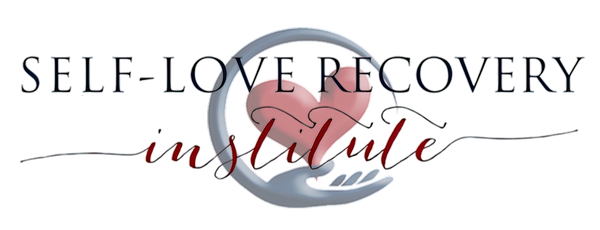Ross Rosenberg's Blog
The Codependent's Lament
The Codependent's Lament
by Ross Rosenberg
I was lost in a desert of my own making,
Parched and weary, my soul aching.
Seeking oasis of love and care,
But finding only mirages of despair.
I gave my water, my last precious drop,
To those who would not, could not stop.
Their thirst was endless, a bottomless well,
And I, the prisoner of my own private hell.
I built my home on shifting sands,
Trying to meet their demands.
I thought if I gave enough, they would see,
And finally, have love for me.
Friendships by Design: Mastering Social Connection in Midlife
In "Friendships by Design: Mastering Social Connection in Midlife," Ross Rosenberg, M.Ed., reframes making friends after 40 as a learnable skill rather than a matter of luck, offering a compassionate guide that turns anxiety into actionable strategies. He argues that building a meaningful community requires a foundation of self-love, which enables individuals to drop pretenses, manage negative self-talk, and avoid the "trying too hard" trap.
By practicing mindfulness, showing genuine curiosity in others, engaging in shared activities, and being persistently open to connection without desperation, individuals can forge deeper, more authentic friendships built on courage and intentionality, ultimately proving that the most rewarding social connections are still ahead.
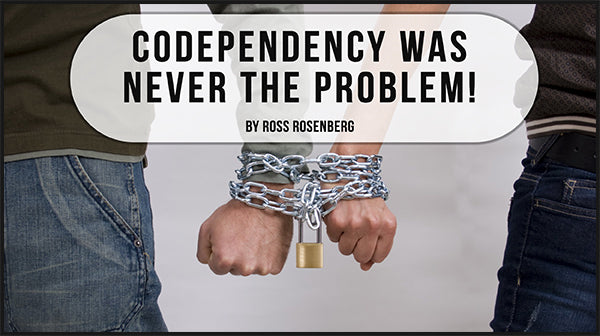
CODEPENDENCY WAS NEVER THE PROBLEM!
This article will explore the relationship between codependency, attachment trauma, and pathological loneliness and the role that psychotherapy can have to solve this pathological circle. Perhaps not everyone knows that it is possible to think of codependency as a secondary condition, a symptom of profound mental health issues: it is not the problem we are dealing with, but a problem caused by much deeper issues.
Co-Dependency Anonymous Was Broken from the Start
A SYNOPSIS OF ROSS ROSENBERG'S BROKEN FROM THE STARTCO-DEPENDENTS ANONYMOUSWho Has Power Over Whom? YouTube Video: tiny.cc/CoDA_Is_Broken Just like other 12-step programs, CoDA’s first step pinpoints the out-of-control addiction or compulsive...
To Dash or Not Dash - Co-Dependency's Evolution
The “dash” version of co-dependency never advanced beyond its original family systems theory influence. Still, it sheds light on the addict’s chemical dependency and their partner’s propensity to sabotage their treatment unconsciously, reflexively, and predictably. Moreover, with the development of the co-dependency term, concept, and burgeoning treatment accommodations available to them, positive and negative treatment outcomes could be statistically correlated to the participation of the partner to the addict.
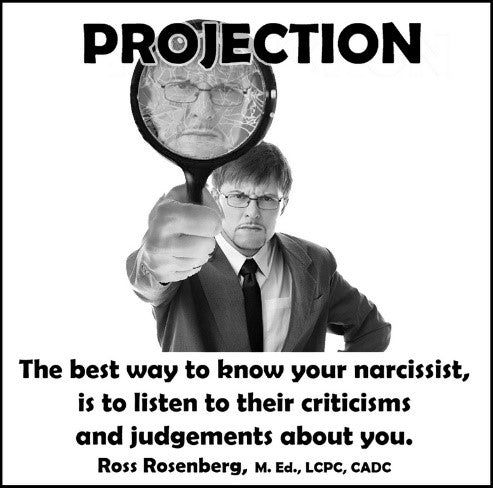
PROJECTION AND NARCISSITIC INJURIES
Projection is a defense mechanism that invisibly and unconsciously protects the narcissist from understanding their true shame-dominated and self-hating selves. Narcissists project their self-hatred, self-judgment, and unexpressed rage over their unmitigated child abuse onto a safer person: the offending and supposedly injuring person. Projection conveniently shifts, places, and diverts all of what the narcissist hates about themselves, which is too painful and unsafe to recollect, onto the person they misperceived as hurting them.

TALKING ABOUT A REVOLUTION
Excerpt from “The Codependency Revolution:Fixing What Was Always Broken (2024)” Ross Rosenberg, M.Ed., LCPC, CADC The Outside Revolution “…..As my typing fingers translated the circuitous exploratory processes of my mind, I...
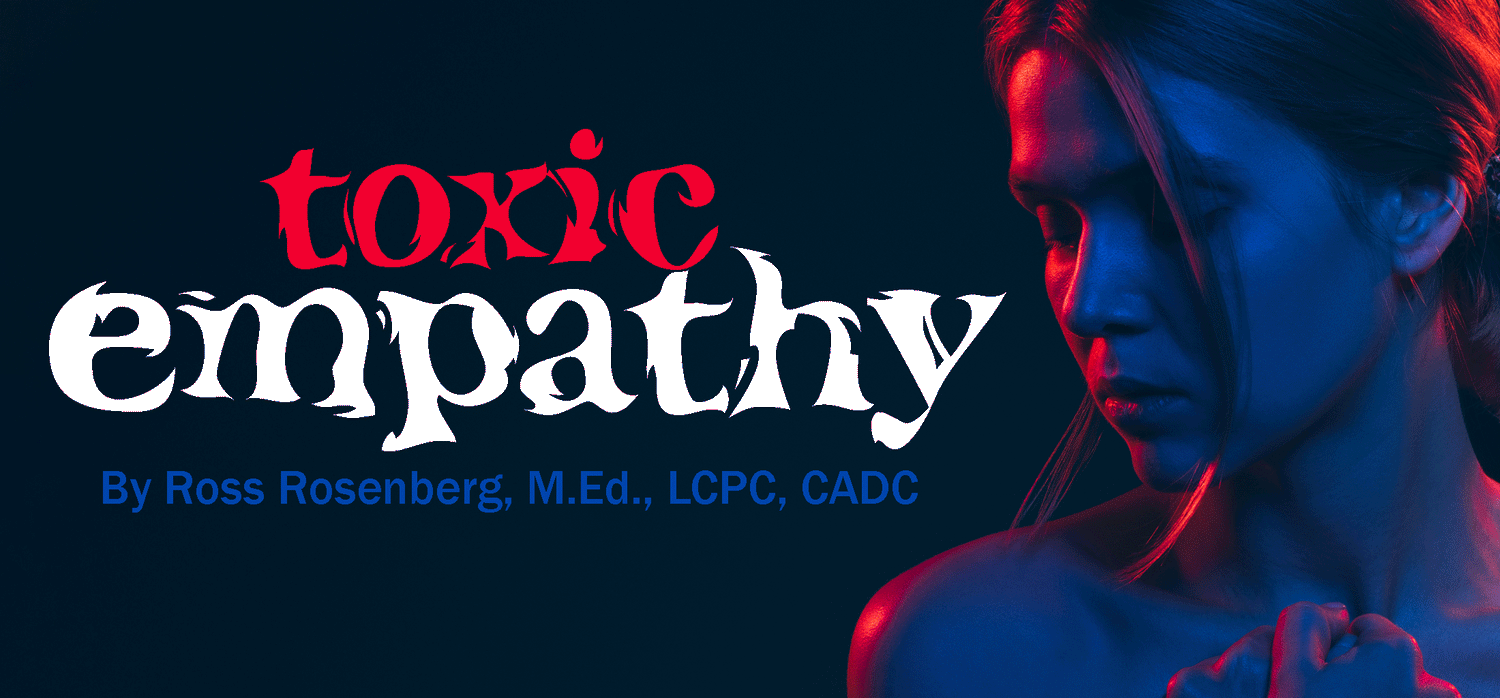
Toxic Empathy
Toxic Empathy Excerpt from Upcoming“The Codependency Revolution”Released with workbook in November 2023 Written by Ross Rosenberg, M.Ed., LCPC, CADCSelf-Love Recovery Institute — President/CEOPsychotherapist, Educator, Author, Expert Witness TOXIC EMPATHY Before describing toxic empathy, its healthy form...
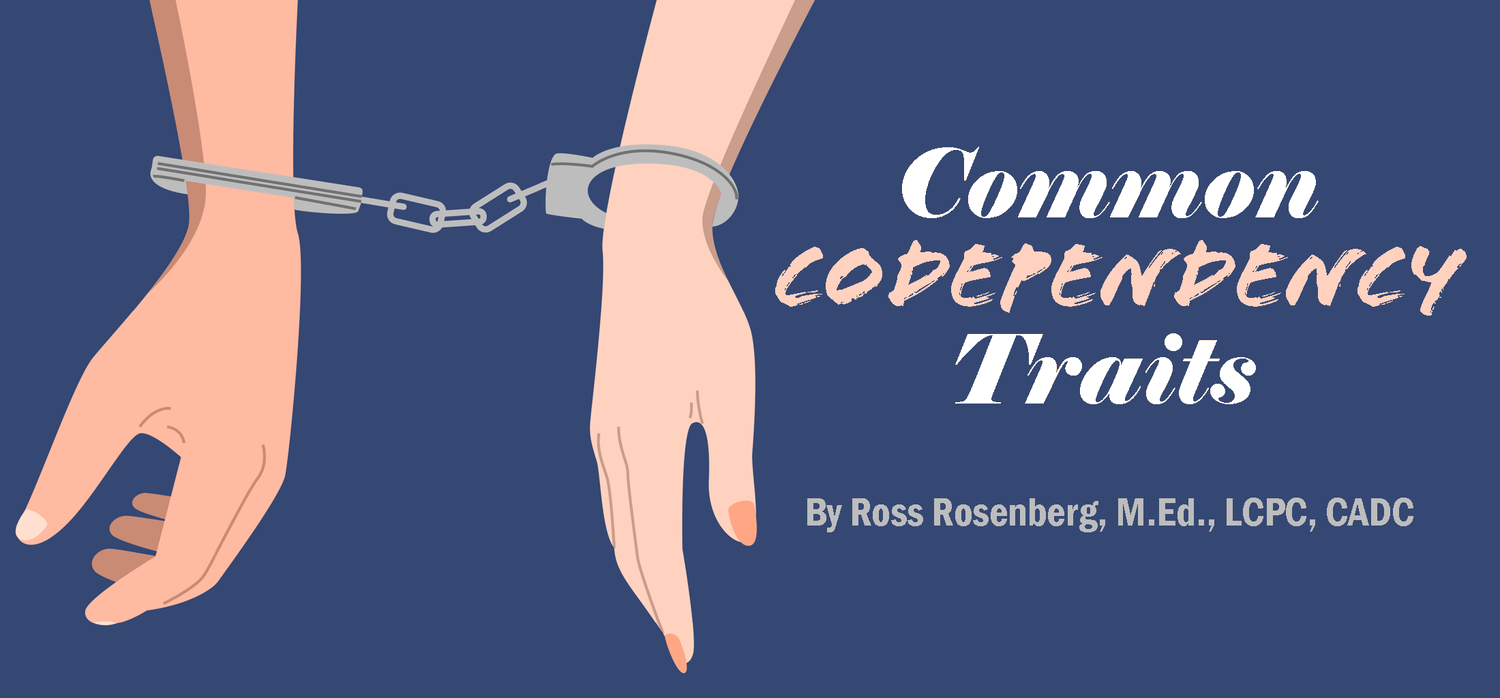
Common Codependency Traits
Common Codependency Traits Excerpt from Upcoming“The Codependency Revolution”Released with workbook on November 1, 2023 Written by Ross Rosenberg, M.Ed., LCPC, CADCSelf-Love Recovery Institute — President/CEOPsychotherapist, Educator, Author, Expert Witness COMMON CODEPENDENCY TRAITS Although codependency has been...
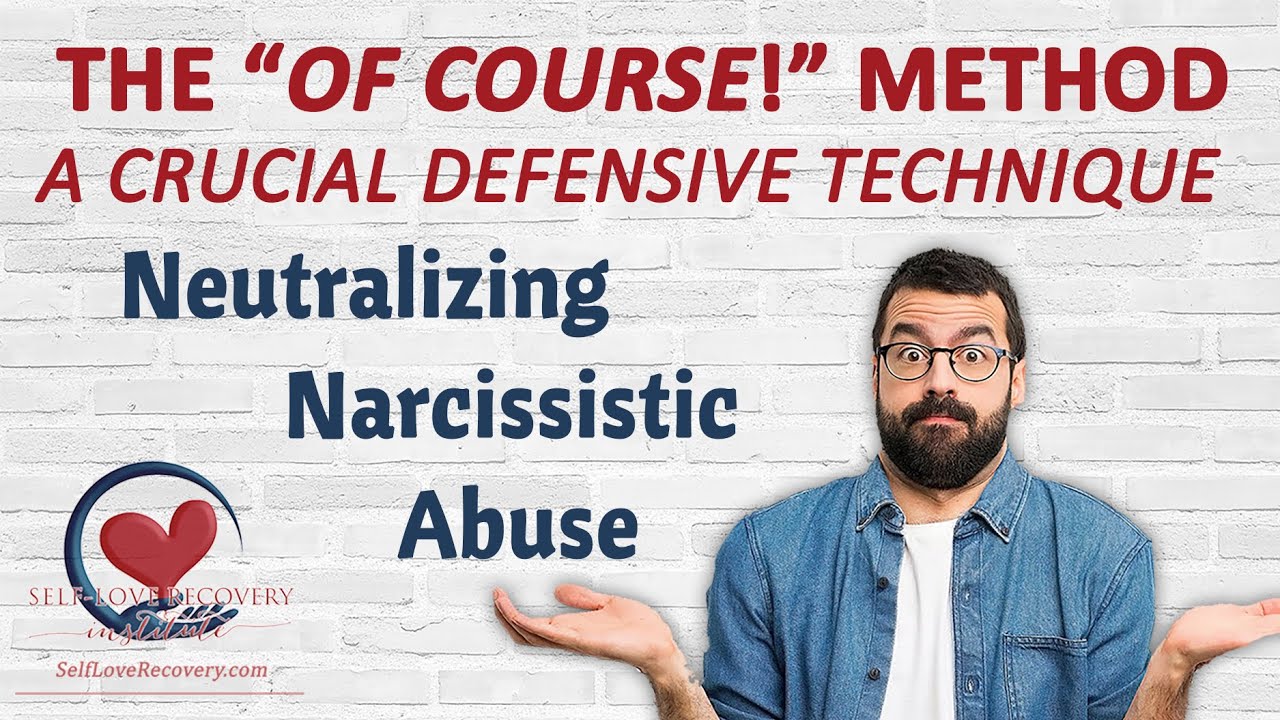
The "Of Course" Method: Neutralizing Narcissistic Abuse
One of the most effective techniques for setting boundaries and breaking free from a pathological narcissist is the “Of Course Method.” It may seem like a simple turn of phrase, but “of course” are two small words that hold huge
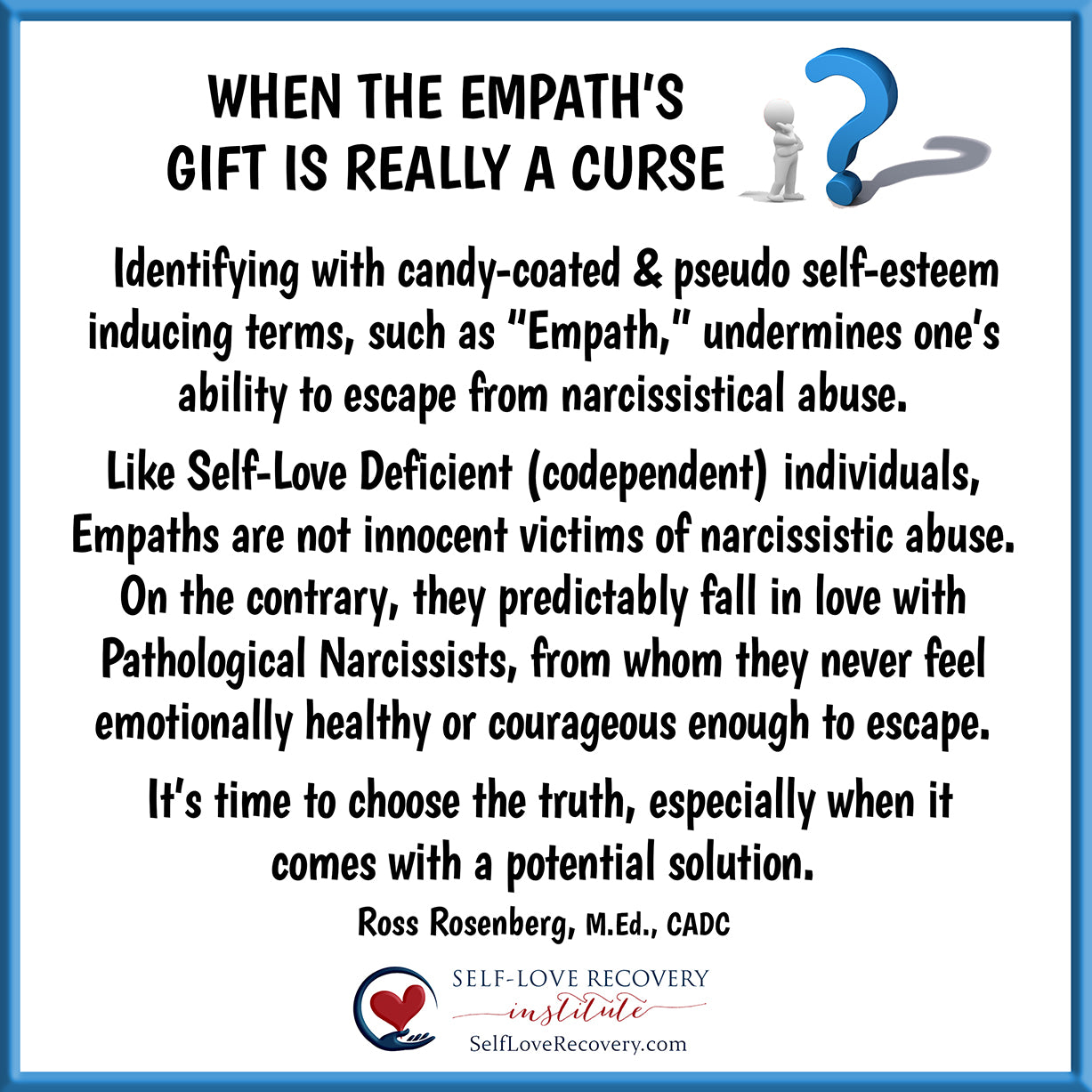
"Empath" Is Not the Same as "Codependent"
I have to be honest, I do not like when the term “empath” is used interchangeably with “codependent.” “Empath,” which has its origins in the spiritual and metaphysical world, was never intended to be a replacement term for codependency. An empath is defined as a person with the paranormal ability to intuitively sense and understand the mental or emotional state of another individual...

"Codependency" No More
“Codependency” is an outdated term that connotes weakness and emotional fragility, both of which are far from the truth. The replacement term, “Self-Love Deficit Disorder” or SLDD, takes the stigma and misunderstanding out of codependency and focuses on the core shame that perpetuates it. However, inherent in the term itself is recognizing the core problem of codependency and its solution.
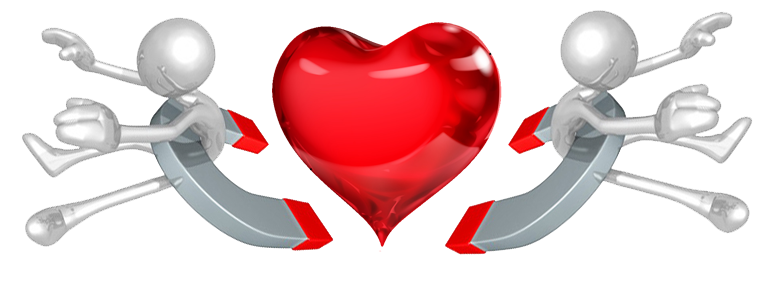
Codependent Love Poem
Men and women always have been drawn into romantic relationships instinctively, not so much by what they see, feel or think, but more by an invisible and irresistible relationship force. Ross Rosenberg, a seasoned psychotherapist, professional trainer, and recovering codependent, calls this compelling and seductive “love force” the Human Magnet Syndrome. “Chemistry,” or the intuitive knowingness of perfect compatibility, is synonymous with the Human Magnet Syndrome. This is the attraction force that brings compatibly opposite, but exquisitely matched, lovers together: codependents and narcissists.

Codependency Anorexia: Are You Starving Yourself From Love?
Codependency Anorexia occurs when a codependent surrenders to their life-long relationship pattern to destructive pathological narcissists. I define codependency as an individual psychopathology that manifests within relationships. The codependent habitually finds themselves in relationships with pathological narcissists, with whom they give the lion’s share of love, respect and care (LRC), while being denied the same. Although they are consistently on the short end of the receiving stick, they stay in the relationship because they are both afraid of being alone and believe that if given enough time, they will be able to change or control the narcissist’s selfishness and entitlement.
